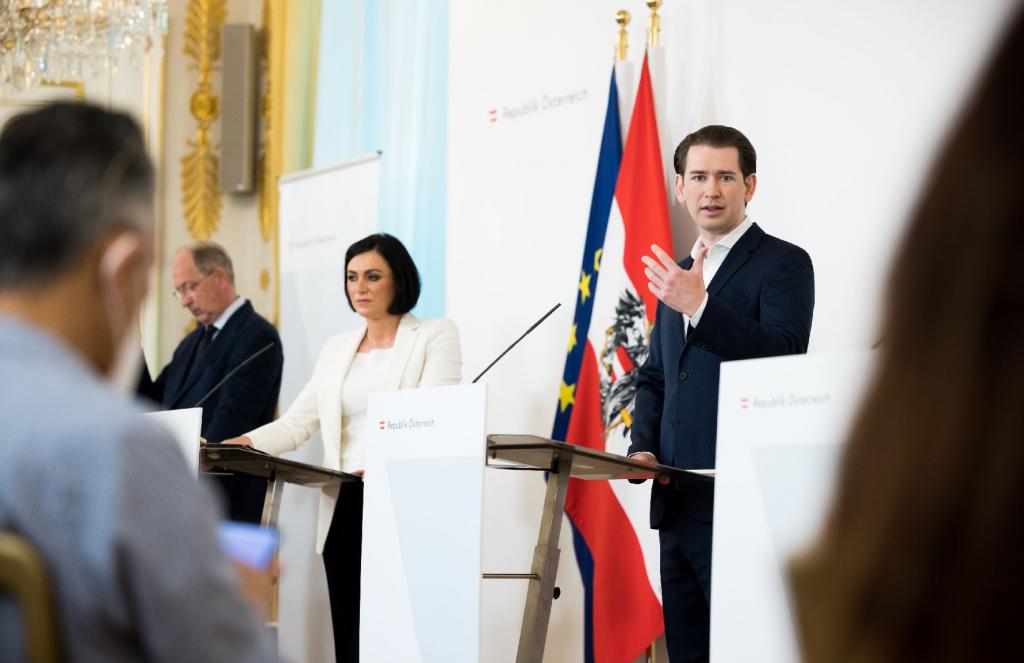Thessaloniki gets ready for its metro launch in November
The underground rapid transit lines have been under construction for almost two decades due to various project delays
 TheMayor.EU logo
TheMayor.EU logo 
Chancellor Sebastian Kurz in a press conference on further opening steps for Austria, Source: Bundeskanzleramt Austria, BKA photo service
Chancellor Sebastian Kurz announced that bars, clubs, theatres, and stadiums will reopen on 1 July
On 17 June Chancellor Sebastian Kurz announced at a press conference that a lot of the Covid restrictions will be relaxed in Austria, starting 1 July. People will be able to enjoy arts, culture, sports and the nightlife scene relatively normally, as long as they adhere to the 3G rule.
The 3G rule refers to “Getestet, Geimpft, Genesen” (Tested, Vaccinated, Recovered) and describes the three ways someone can provide evidence that they are immune to the virus.
People will need to demonstrate which category they fall in and it may be in paper or electronic format. This will grant them certain perks when it comes to entertainment events. The following rules only apply to people in one of the above-mentioned categories.
Bars and restaurants will no longer have to close at midnight and the restrictions for the number of people in the crowd will be dropped for most venues.
Drinking at a bar and maskless dancing will be allowed again. Clubs can open at 75% capacity. People will also be able to go to the theatre and the stadium again. Mask requirements will be lifted, with the notable exception of hospitals and nursing homes.
In the case of large events, from 1 July there will be a notification requirement for 100 or more people and a permit requirement for 500 or more people.
Chancellor Kurz said in a press release that all this is possible due to the vaccination rates in the country and then urged people to get an appointment so that society can move further along the road to normality.
Health Minister Wolfgang Mückstein expressed this sentiment at the same event. He added that young people in particular had renounced their traditional modes of entertainment and pleasure in solidarity with the vulnerable groups of society.
“We have all achieved this together. Now it is up to us to show solidarity with the kids. Please do not jeopardize these freedoms and continue to adhere to the rules,” he said in conclusion.
The Chancellor reminded everyone that with the Delta strain of the virus and the seasonal effect, the likelihood of another wave in autumn is relatively high. The government needs to proceed with caution, and at the same time, work to restore the old ways of life for its citizens. Nevertheless, he concluded that this is a very decisive economic comeback.
If you want to keep up with how European cities and regions are changing, follow us on Facebook, Twitter and Instagram.

The underground rapid transit lines have been under construction for almost two decades due to various project delays

Now you can get your wine in Talence by paying directly in Bitcoin

That’s because the state has to spend money on updating the railway infrastructure rather than subsidizing the cost of the popular pass

Rethinking renewable energy sources for the urban landscape

The examples, compiled by Beyond Fossil Fuels, can inform and inspire communities and entrepreneurs that still feel trepidation at the prospect of energy transition

Now you can get your wine in Talence by paying directly in Bitcoin

The 10th European Conference on Sustainable Cities and Towns (ESCT) sets the stage for stronger cooperation between the EU, national and local level to fast track Europe's transition to climate neutrality.

At least, that’s the promise made by the mayor of Paris, Anne Hidalgo

The underground rapid transit lines have been under construction for almost two decades due to various project delays

At least, that’s the promise made by the mayor of Paris, Anne Hidalgo

Hostal de Pinós is located in the geographical centre of the autonomous region

Despite its church-y name, the district has long been known as the hangout spot for the artsy crowds

Urban dwellers across the EU are having a say in making their surroundings friendlier to people and the environment.

Forests in the EU can help green the European construction industry and bolster a continent-wide push for architectural improvements.

Apply by 10 November and do your part for the transformation of European public spaces

An interview with the Mayor of a Polish city that seeks to reinvent itself

An interview with the newly elected ICLEI President and Mayor of Malmö

A conversation with the Mayor of Lisbon about the spirit and dimensions of innovation present in the Portuguese capital














